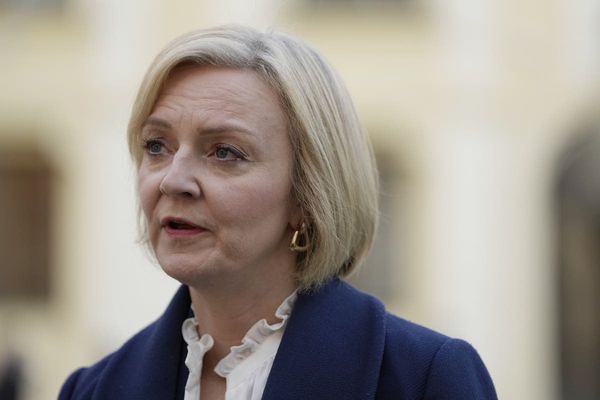
No one is yet quite sure who will attend or what, if anything, will be decided, but Rishi Sunak’s government is adamant that next week’s AI safety summit will be a vital first step towards getting to grips with a subject that is moving at a pace even the experts cannot fully comprehend.
Understandable worries inside No 10 that the Israel-Gaza war could mean a summit lacking in world leaders have eased slightly with confirmation that the European Commission president, Ursula von der Leyen, and the US vice-president, Kamala Harris, will attend.
In another early victory for the UK government, a series of leading AI companies, including OpenAI and Google DeepMind, have released their safety policies after a request from the technology secretary, Michelle Donelan.
However, it remains to be seen how many top-level figures will travel to Bletchley Park, Buckinghamshire, on Wednesday or Thursday – and if anyone at all from China will attend.
The gathering at the country house, which was the base for second world war code-breaking, is a personal project for Sunak, whose speech about AI on Thursday warned about the potentially existential threats posed by the technology while also trying to reassure the public that they need not worry.
Officials who have worked with the prime minister on the summit are dismissive about the focus on who will or will attend, and whether Harris’s decision to use the first day of the event to make a separate speech in London on the US approach to the subject counts as a snub, saying the need for answers is so urgent that waiting is not an option.
Sunak is being briefed that the next models of so-called frontier AI, intended to carry out a wide range of tasks, will arrive in less than a year and are so powerful – about 10bn times more so than their equivalent a decade ago – that not even the designers can be sure what they may achieve.
The prime minister’s official spokesperson confirmed that representatives from China were invited, with the intention of attracting “a broad range of attenders given the global nature of the challenge, and that it knows no borders”.
The spokesperson added: “I’m not going to speculate on attendance. But of course, we want to secure the right group of countries, the right businesses, and I remain confident that we will have that.”
The format will see a broader first day led by Donelan in which ministers, tech firms and other experts will gather to discuss the risks challenges posed by frontier AI.
On the second day, Donelan will collect together smaller groups for a session on ways the technology could be regulated. Sunak will hold talks with what is described as “a small number of like-minded countries and companies” – with China very much not included.
The summit is not expected to come up with solid ideas for regulation, and Sunak’s hope that the UK can become the global centre for such work remains very much an aspiration.
At the very least, he is hopeful that the country can play a leading role in such moves alongside the US, with the idea of the summit having emerged during a trip to Washington in June.
“We will work extremely closely with the US,” Sunak’s spokesperson said. “The US and the UK have the leading companies in this space. So it is logical that both the US and the UK would be at the forefront of it.”










